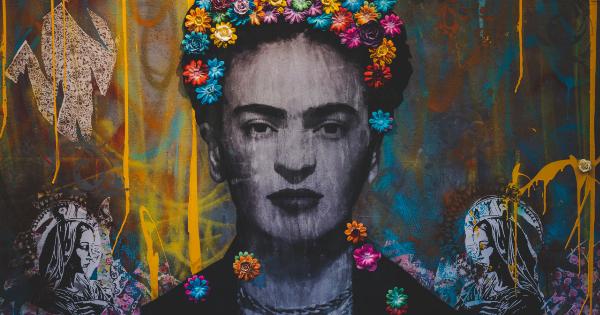In today’s society, discussions surrounding mental health have become increasingly common and important. Mental health disorders can affect anyone, regardless of their background or status, including famous individuals.
In fact, some of the most successful and influential people in history have battled with various mental health conditions. By shedding light on these famous figures and their struggles, we can help reduce the stigma surrounding mental health and inspire others to seek help and support. Here are ten famous people who have openly discussed their mental health disorders:.
1. Vincent van Gogh (1853-1890)
Vincent van Gogh, the Dutch post-impressionist painter, is known for his iconic works such as “Starry Night” and “Sunflowers.” Despite his immense talent, van Gogh struggled with mental illness throughout his life.
He experienced episodes of depression, anxiety, and psychotic episodes, which greatly impacted his creative process.
2. Abraham Lincoln (1809-1865)
Abraham Lincoln, the 16th President of the United States, is revered for his leadership during a time of great upheaval.
However, Lincoln battled with severe depression, which he referred to as his “melancholy.” His mental health struggles made his accomplishments even more remarkable.
3. Winston Churchill (1874-1965)
Winston Churchill, the British Prime Minister during World War II, was admired for his strength and resilience.
Yet, he suffered from depression, which he called his “black dog.” Despite his mental health challenges, Churchill became one of the greatest political leaders in history.
4. Princess Diana (1961-1997)
Princess Diana, the beloved former wife of Prince Charles, was a global icon known for her philanthropic efforts. Behind her public persona, Diana struggled with bulimia and depression.
She used her platform to raise awareness about mental health issues and advocate for those affected by them.
5. Ernest Hemingway (1899-1961)
Ernest Hemingway, the renowned American writer, produced literary masterpieces such as “The Old Man and the Sea” and “For Whom the Bell Tolls.” However, Hemingway also battled with alcoholism, depression, and bipolar disorder.
His mental health struggles influenced his writing and ultimately contributed to his tragic end.
6. Demi Lovato (born 1992)
Demi Lovato, a multi-talented singer, songwriter, and actress, has openly shared her journey with mental health disorders. Lovato has battled with bipolar disorder, addiction, eating disorders, and self-harm.
She has become an outspoken advocate for mental health and serves as an inspiration for others.
7. Sir Elton John (born 1947)
Sir Elton John, the legendary musician and songwriter, has achieved worldwide fame with his memorable hits and captivating performances. Behind the scenes, John has struggled with addiction, depression, and bulimia.
He has used his platform to support various mental health initiatives.
8. Virginia Woolf (1882-1941)
Virginia Woolf, the influential English writer and pioneer of stream-of-consciousness literature, battled with mental health disorders throughout her life. She experienced severe depression, anxiety, and had bipolar tendencies.
Woolf’s works often reflected her own inner struggles.
9. Nikola Tesla (1856-1943)
Nikola Tesla, the brilliant inventor and engineer, is renowned for his contributions to the fields of electricity and magnetism.
However, Tesla also exhibited signs of obsessive-compulsive disorder (OCD) and had several phobias, including an intense fear of germs and over-cleanliness.
10. Frida Kahlo (1907-1954)
Frida Kahlo, the celebrated Mexican painter, produced powerful and introspective artworks, often inspired by her own experiences and physical pain. Kahlo suffered from depression, anxiety, and chronic pain as a result of a bus accident.
Despite her struggles, she became an icon of resilience and self-expression.
These ten individuals are just a fraction of the many famous people who have grappled with mental health disorders. Their stories serve as a reminder that mental health does not discriminate and that seeking help is a sign of strength.
By destigmatizing mental health and providing support, we can create a more inclusive and understanding society.





























